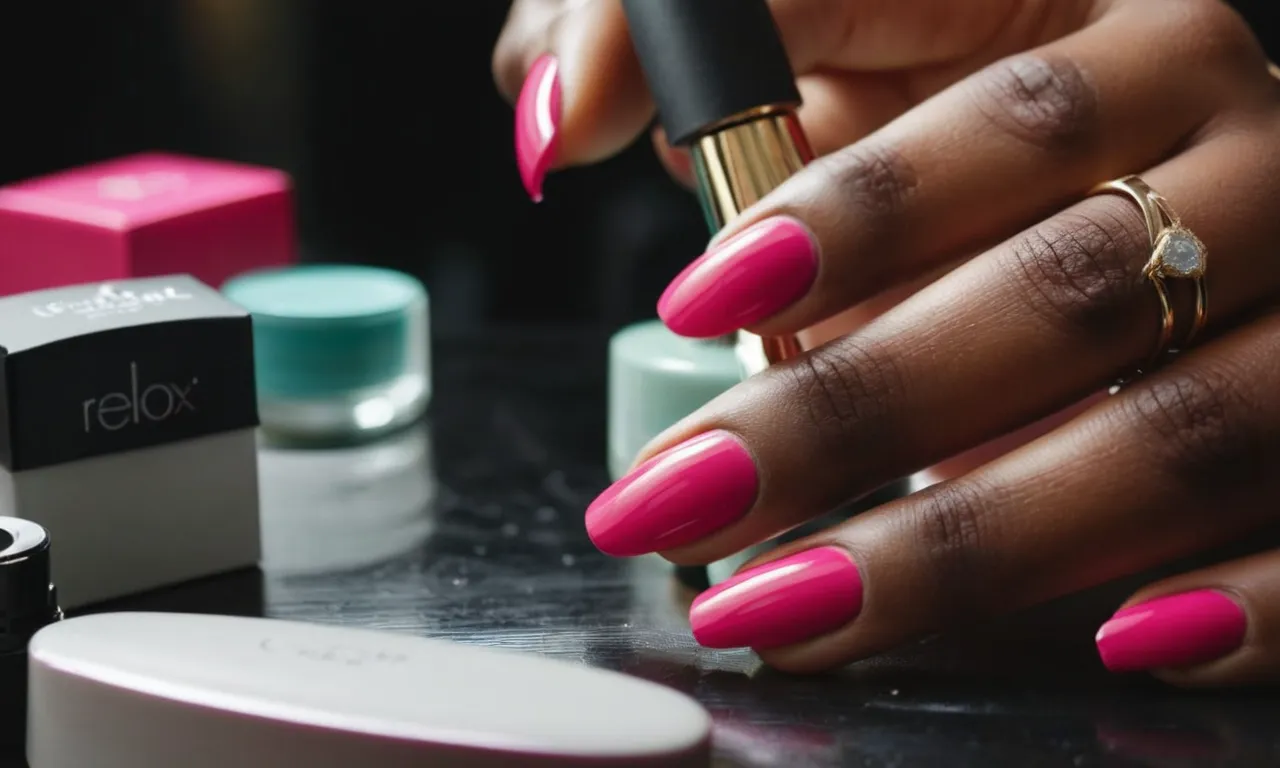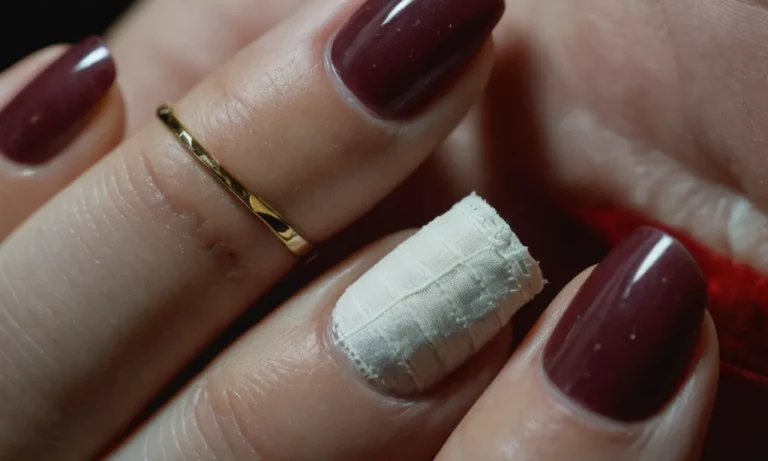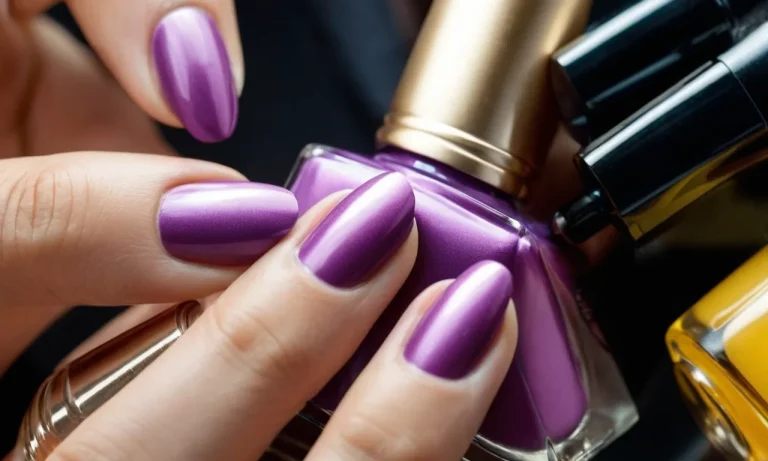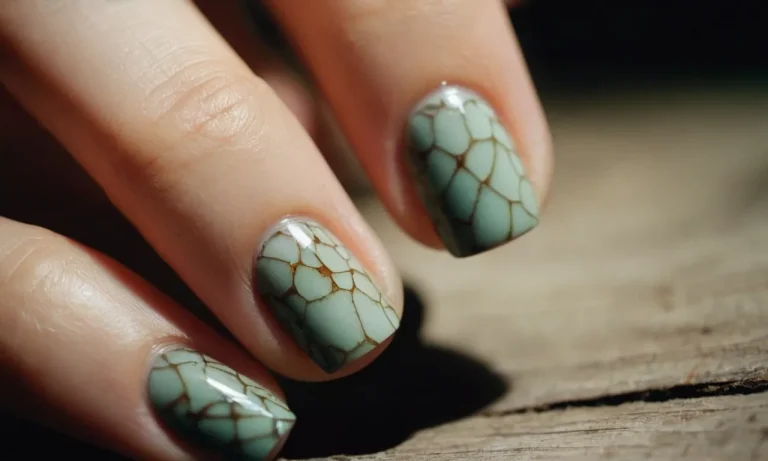Do You Need A License To Do Nails At Home?
With the rising costs of getting your nails done professionally, more and more people are considering doing their own manicures and pedicures at home. But before you break out the nail polish and files, you may be wondering – do you need a license to do nails at home?
The short answer is no, in most cases you do not need any special licensing or certification to do nail services for yourself, family, or friends in your own home. However, there are some important legal and safety considerations to keep in mind.
In this comprehensive guide, we’ll walk through everything you need to know about the licensing requirements, laws, risks, and best practices for doing nails safely at home. We’ll cover key questions like: can you legally do nails from home as a business? What are the regulations in your state?
And what steps should you take to protect yourself and avoid legal issues down the road?
Licensing Requirements for Professional Home Salons
Nail Technician License Requirements
In most states, you need to obtain a nail technician license in order to provide professional nail services from home. The requirements vary by state, but generally involve completing a certain number of training hours (around 300 hours), passing written and practical exams, and paying licensing fees.
Some states require that you complete high school or possess a GED as well. Licenses must be renewed every 1-2 years in most cases.
For example, in California you need to complete a minimum of 350 hours of board-approved training and pass both a written and practical exam to get your nail technician license. The initial license costs $110 and must be renewed every two years for $50.
Make sure to check your own state’s requirements.
Business Permit and Zoning Regulations
In addition to a nail tech license, those operating professional home salons usually need a business license or permit from their city or county. For example, Los Angeles County requires a public health license to operate any nail salon.
The cost is around $141 for the first year and $103 for renewal. There may also be zoning restrictions prohibiting salon businesses from being operated out of residential homes in some areas, so check local regulations.
Some home-based salon owners opt to form a limited liability company (LLC) or corporation for extra legal protections. An LLC costs around $800 to set up in most states. While not necessarily required, it adds credibility and a more professional appearance to your home salon business.
Safety and Sanitation Requirements
All professional nail salons, including home-based ones, must adhere to certain health and safety standards. Most states regulate elements like proper ventilation, access to hand-washing facilities, and having licensed nail techs.
For example, in Texas, home salons must have hot and cold running water and access to restrooms. Work stations should be cleaned and disinfected between clients as well. Using EPA-approved disinfectants is critical.
Some additional best practices include wearing gloves and masks when performing services, properly sterilizing tools, providing clients with new nail files/buffers, and maintaining a clean and organized workspace. Taking an advanced sanitation training course is highly recommended.
Following proper sanitation procedures ensures a safe environment for both technician and clients.
Rules for Non-Professional Home Manicures
No License Needed for Family and Friends
You don’t need a nail technician license if you’re doing manicures for yourself, family members, or friends free of charge in your home (not a salon space). Casual, unpaid manicures for people you know don’t require any special licensing or regulations.
However, make sure you’re still following sanitation and disinfection guidelines to do healthy, safe home manicures for your inner circle.
Limitations on Earning Income from Home Manicures
If you want to earn money by offering professional nail services out of your home, you likely need a state board of cosmetology license for nail technicians. Only 12 states allow unlicensed practice. Most states prohibit earning income from professional manicures without a license, even if you operate a nail salon business out of your home rather than a commercial space.
Fines can range from $250-$5000 for unlicensed practice. Some homeowner’s insurance policies may also preclude operating a home salon business without explicitly added coverage.
Rather than offering professional manicures from home, many women host manicure parties or nail art parties for friends as hourly paid party hosts without needing a license. Gatherings with friends where attendees pay a host for a fun experience rather than explicit nail services may have more flexible rules.
However, policies vary in different counties and cities, so check your local regulations.
Considerations for Home Manicure Parties
Hosting pop-up style manicure parties at home for groups of friends or kids’ birthday parties can be an enjoyable gig. However, be sure to follow state board health and safety rules even for more casual parties at home.
- Carefully sanitize tools and dispose of used files, buffers, etc after each client
- Disinfect workspaces thoroughly and allow proper contact time for disinfectant chemicals to work between clients
- Have guests wash hands before receiving service
- Use disposable accessories like nail files, toe separators, etc whenever possible
Additionally, check if your homeowner’s insurance covers potential liability for injuries or reactions related to products used for at-home salon services. Many policies exclude business activities from home. Consider supplemental coverage if hosting frequent pop-up parties.
With some thoughtful precautions, home manicure parties can be a delightful activity among friends or for children’s events. Just take care to maintain clean, sanitary conditions and verify how liability and regulations apply for your home business.
Best Practices for Safe, Legal Home Manicures
Have Proper Training and Use Quality Products
Giving manicures at home without proper training and licensing can be risky. However, with some preparation, you can safely do your own nails or your friends’ nails in the comfort of your home. Here are some tips:
- Watch tutorials and read guides on proper manicuring techniques, tools, and products. YouTube, blogs, and books are great resources.
- Invest in quality nail files, clippers, cuticle tools, polishes, top coats, and removers. Cheap products can damage nails and skin.
- Practice techniques like cuticle removal, filing, polishing, art, etc. on fake hands first to get comfortable.
- Learn about nail health, common problems like infections, and how to avoid them with proper care.
With training, you’ll gain the skills to shape, buff, polish, and care for natural nails safely. Always disinfect tools and follow sanitary practices too.
Follow Sanitation and Disinfection Protocols
Nail care involves a lot of contact with hands, feet, tools, and products, so sanitation is crucial. Here are some tips for clean, safe DIY manicures:
- Wash your hands and scrub under nails before starting and have clients do the same.
- Disinfect all tools and surfaces between uses with EPA-approved products like Barbicide or alcohol.
- Never double-dip when using nail polish remover or buffing blocks.
- Replace nail files after each use and discard emery boards after 5-7 uses.
- Store supplies in clean, sealed containers and don’t let products touch directly.
- Use disposable materials like cotton rounds and orangewood sticks whenever possible.
- Wear gloves during lengthy procedures to avoid transmitting germs.
- Sterilize metal tools like clippers and pushers in boiling water or UV/LED sanitizers.
Following good hygiene practices reduces the risk of spreading infections like fungal nails or staph. It also maintains professional standards in your DIY salon.
Consider Liability Insurance
Though manicures are generally safe, accidents can happen, like nail or skin damage. Product reactions are also possible. This opens you up to potential liability.
Even if you only do nails for family and friends, having liability insurance as a home business owner provides protection. Policies start at around $300 annually. Ensure coverage includes:
- General liability for property damage and bodily injury claims.
- Professional liability for mistakes and omissions.
- Product liability for any reactions to supplies you use.
- Optional coverage like tools and equipment.
Insurance gives peace of mind if clients ever claim negligence. It shows you operate professionally and want to make things right if problems occur.
With training, sanitization, and insurance, you can safely offer manicure services from your home. Just be sure to check your state’s requirements too. Some regulate home salons more strictly than others. Overall, taking steps to nail health, hygiene, and liability make DIY manicures low-risk.
State-by-State Regulations and Requirements
California
In California, you are required to have a license issued by the California Board of Barbering and Cosmetology to provide nail services professionally. To obtain a manicurist license, you must complete at least 400 hours of approved training and pass both a written and practical exam.
Operating without a license can result in fines up to $1,000 and one year in jail. However, you are permitted to do nails on family members in your own home without a license.
Texas
Texas requires a license for anyone providing nail services for compensation. To qualify for a manicurist license, you must complete 600 hours of instruction at a state-approved beauty culture school and pass both a written and practical exam. Licenses must be renewed every two years.
Unlicensed practice of nail services in Texas is a Class C misdemeanor punishable by up to $500 in fines. There is an exemption that allows you to do nail services for family members without a license.
Florida
In Florida, a license is mandatory for professionals who provide nail and other beauty services. To get licensed as a nail specialist, you need to complete a minimum of 240 hours of board-approved training and pass Florida’s examinations. Licenses need to be renewed every two years.
Operating without a valid license can lead to second degree misdemeanor charges and penalties up to $500. Florida does allow individuals to do nail services in their own home for family members without obtaining a license.
New York
New York requires manicurists and nail technicians to have a license from the New York Department of State’s Division of Licensing Services. To qualify for licensure, you must complete 250 hours of formal training in nail specialty and pass both written and practical exams.
Licenses must be renewed every four years. Unlicensed practice is punishable by fines of $500 for the first offense. Subsequent offenses can lead to fines up to $5,000 per violation. However, New York allows unlicensed nail services for non-paying clients like family members.
Illinois
In Illinois, anyone providing nail services needs to be licensed by the Illinois Department of Financial and Professional Regulation. Licensure requires 350 hours of approved education and passing scores on written and practical tests. Licenses expire after two years.
Operating without a license results in civil penalties up to $5,000, as well as possible criminal charges. Unlicensed practice in unsanitary conditions can be charged as a Class A misdemeanor. Illinois does make an exception for individuals doing nails for family members without compensation.
Conclusion
While a license is not required for informal home manicures for yourself, family and friends, there are important regulations to consider if you want to offer professional nail services out of your home.
Following best practices for training, sanitation, zoning, and liability protection will help you reduce risks and provide quality services. With some research on your state’s specific rules, you can feel confident in creating a safe, compliant, and successful home-based nail business.







